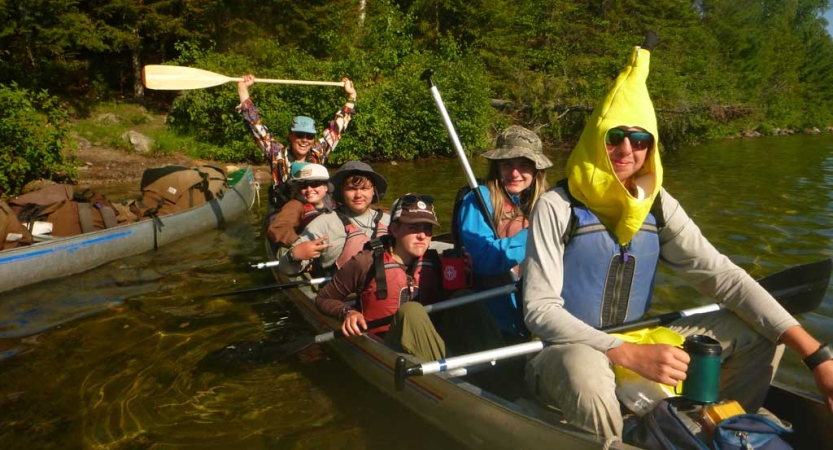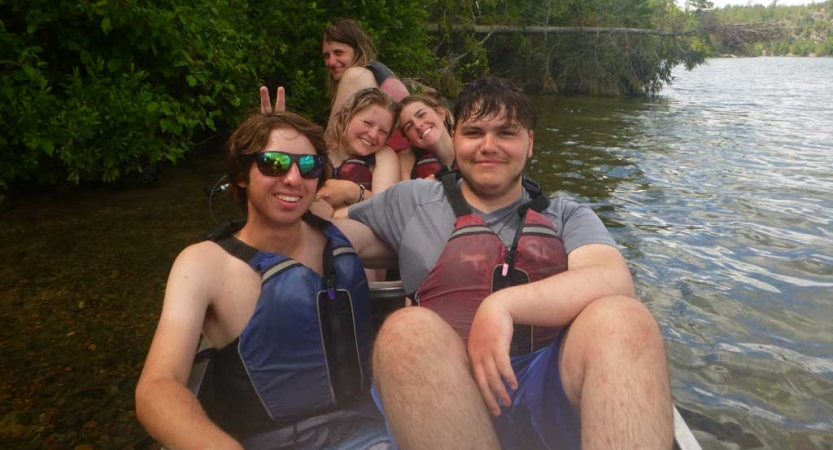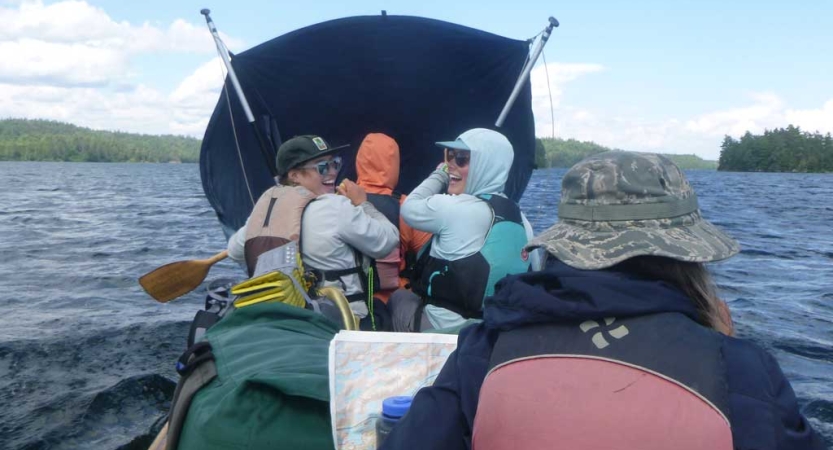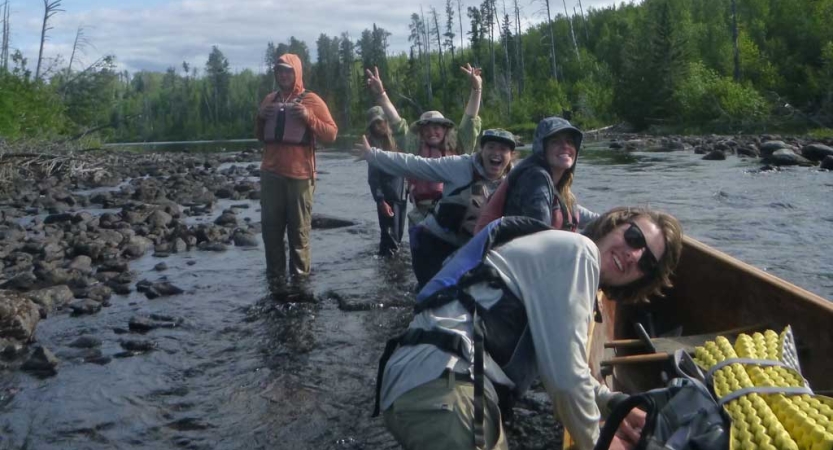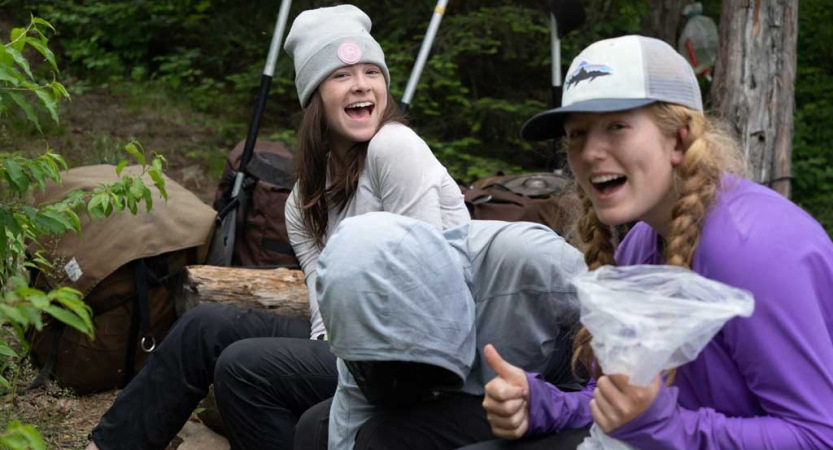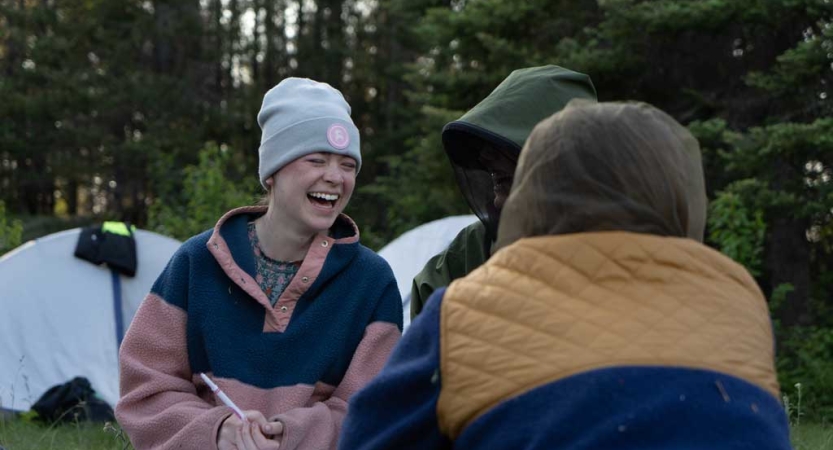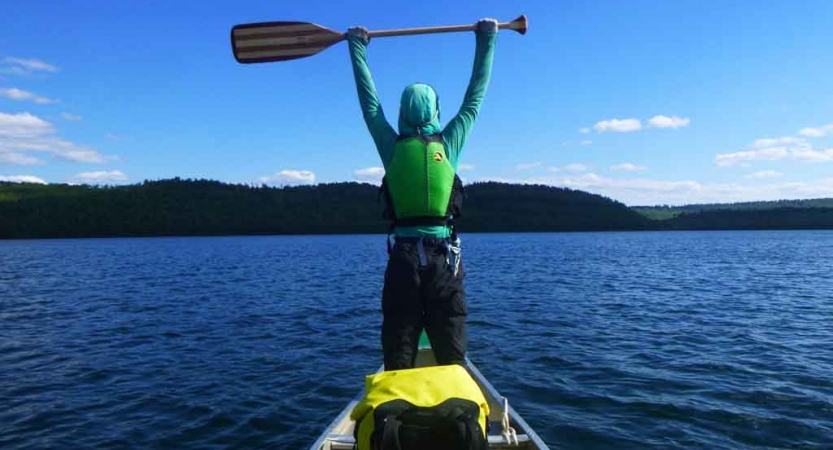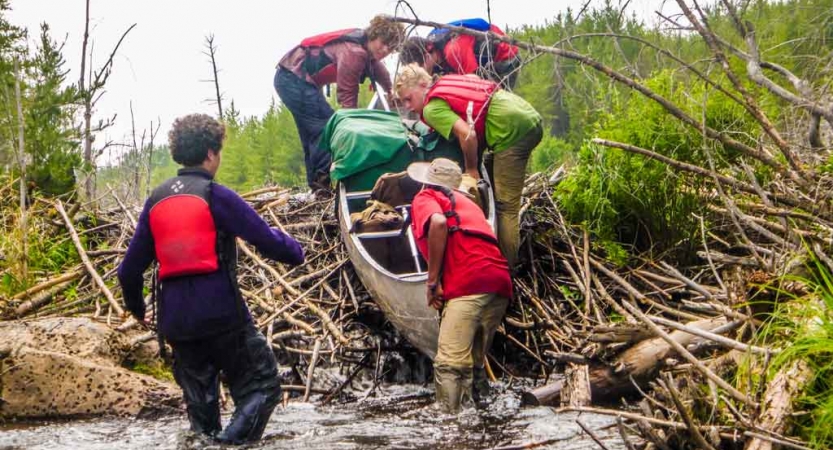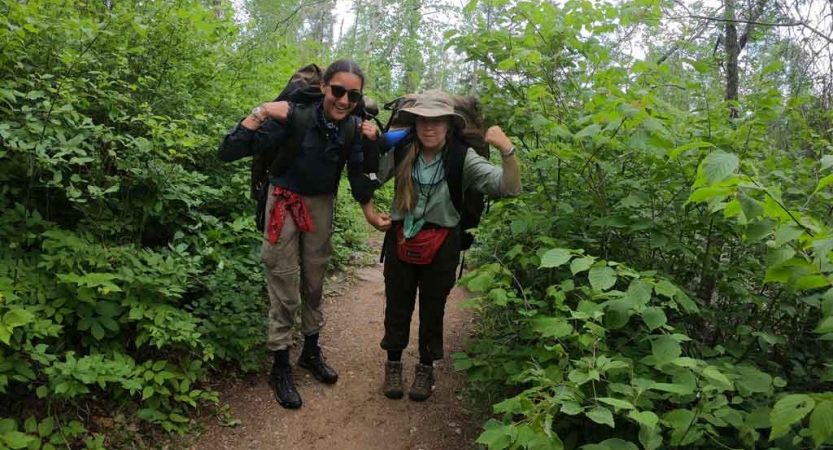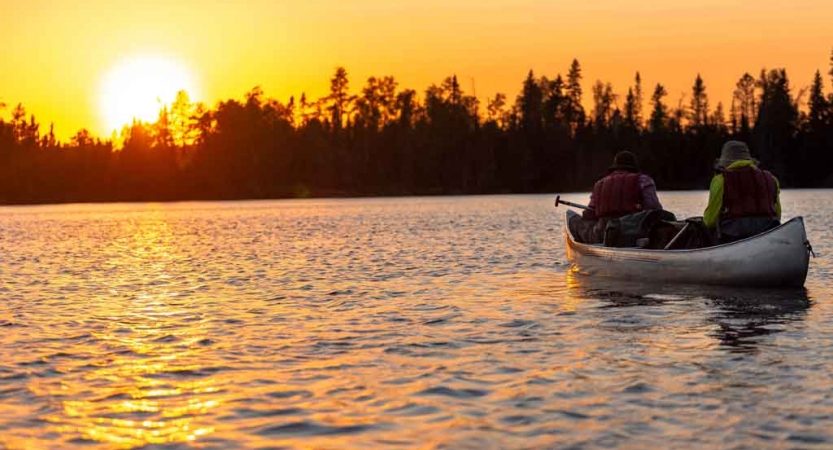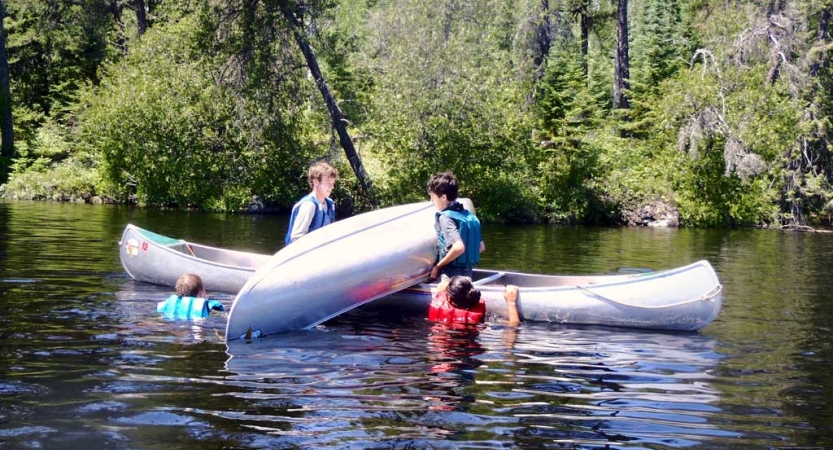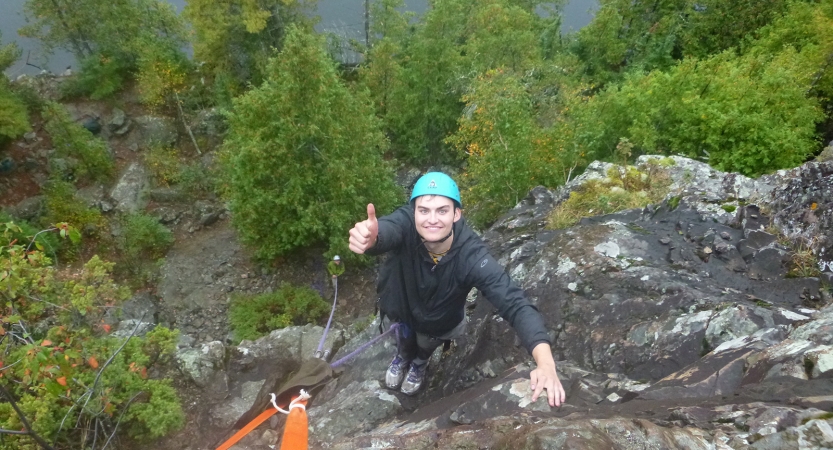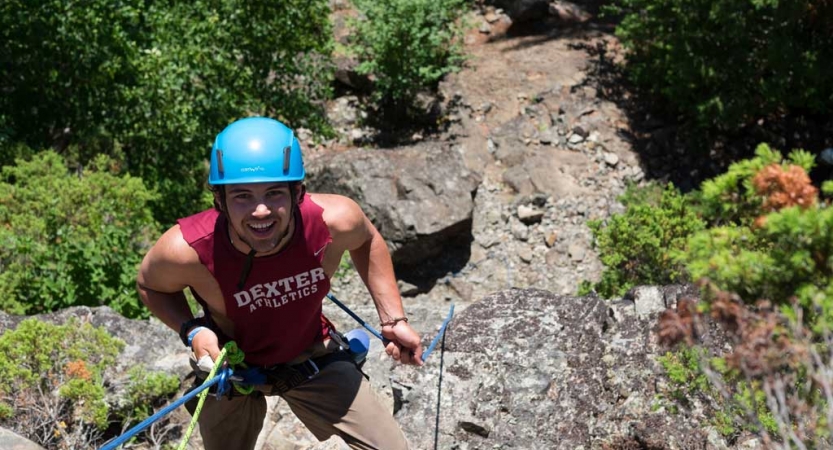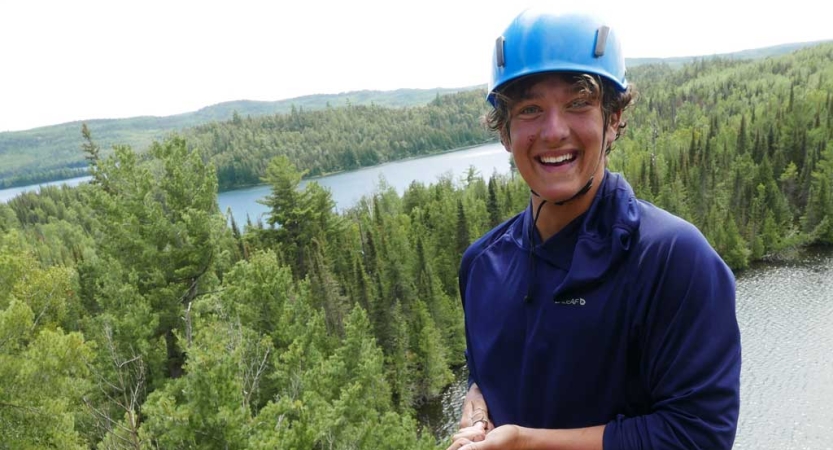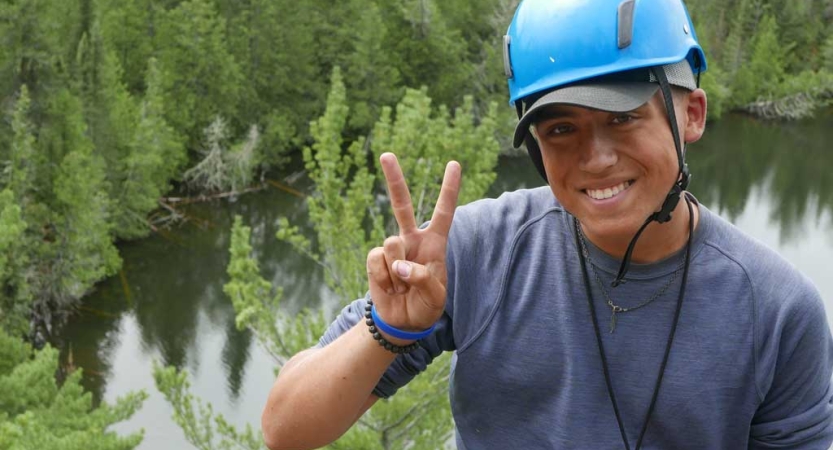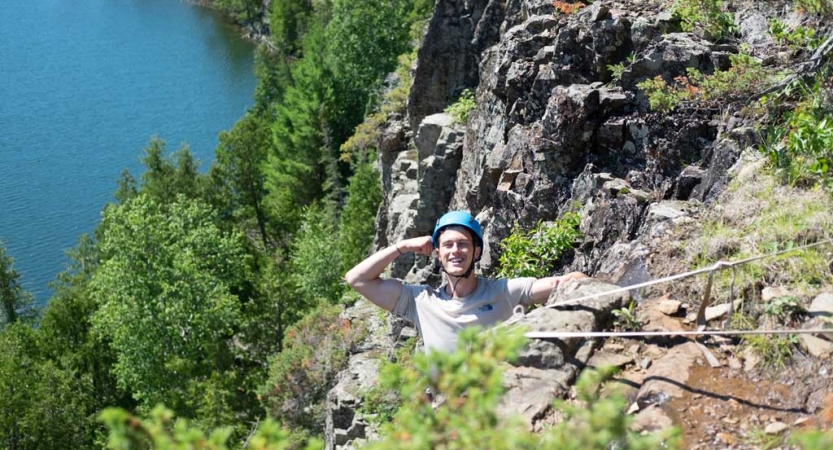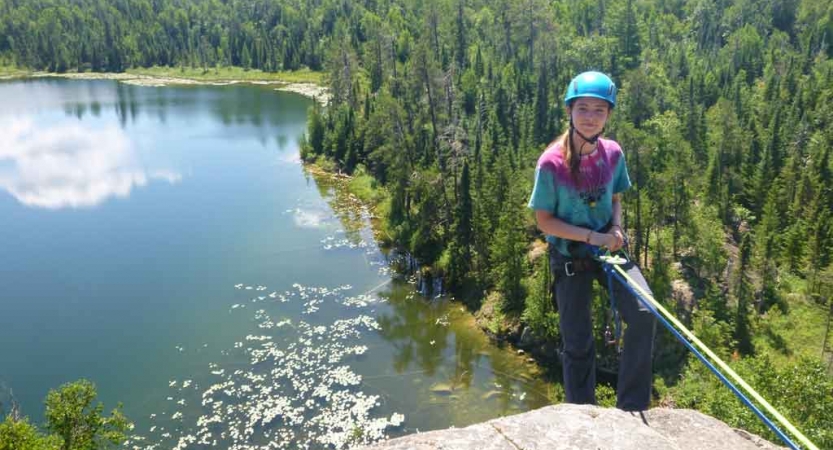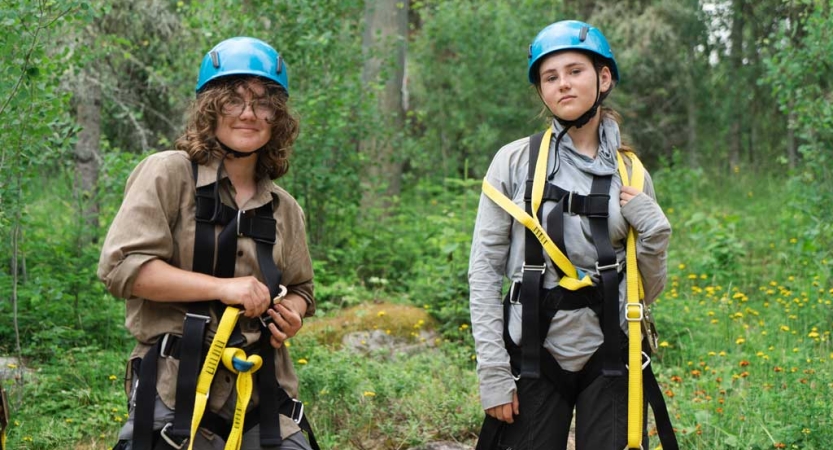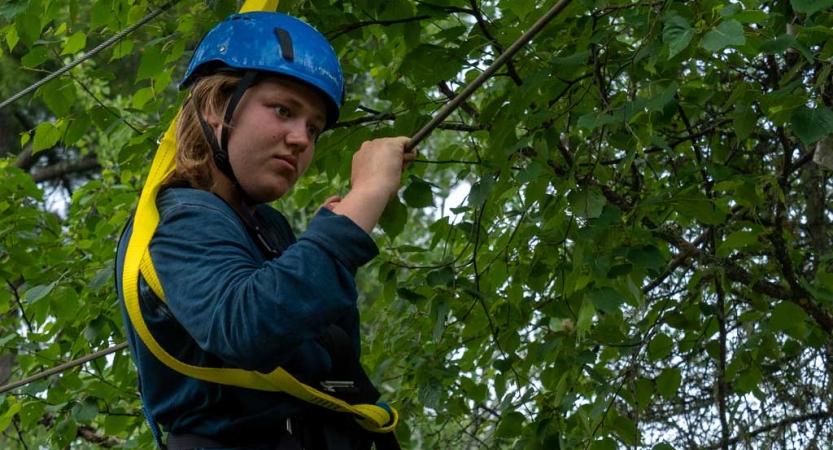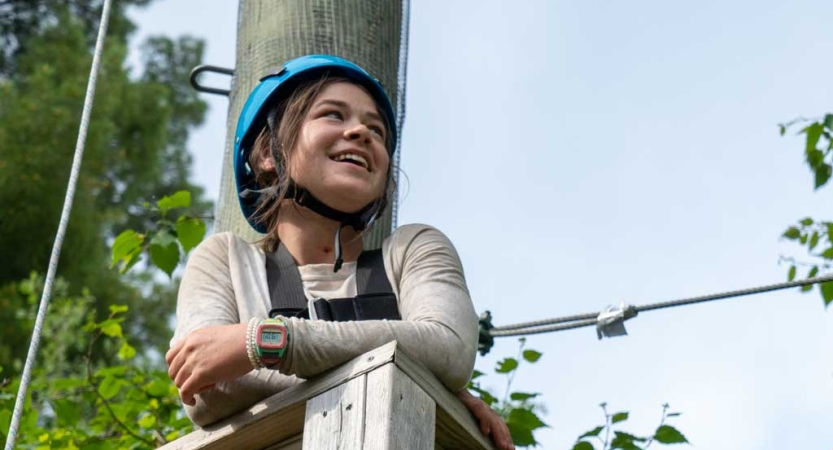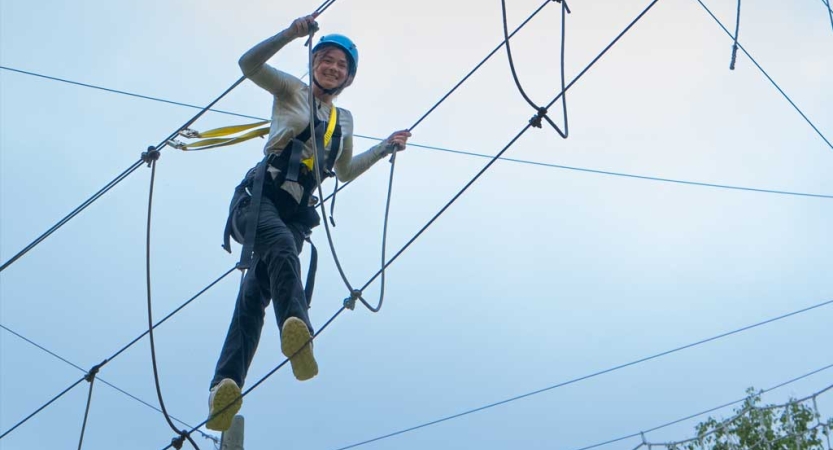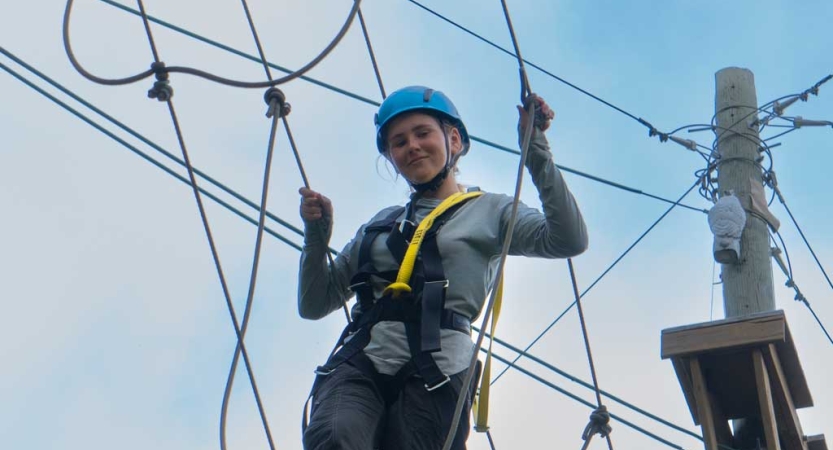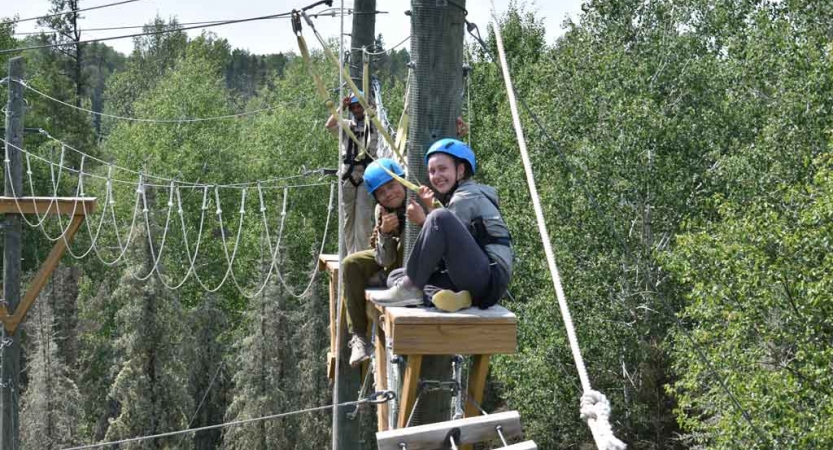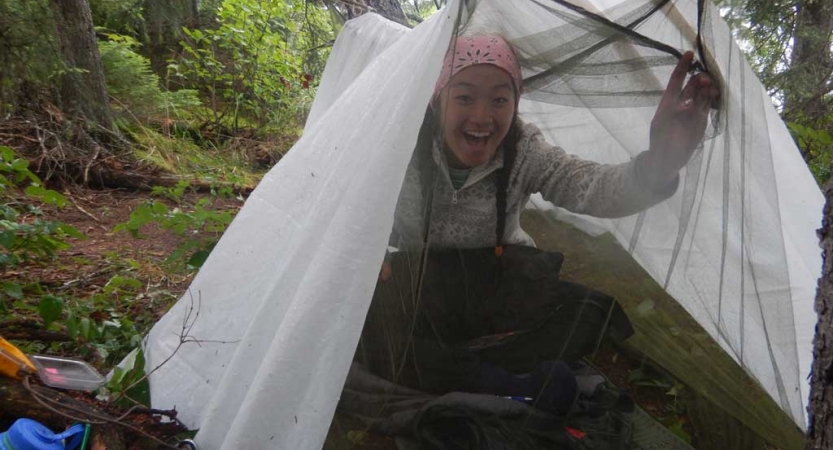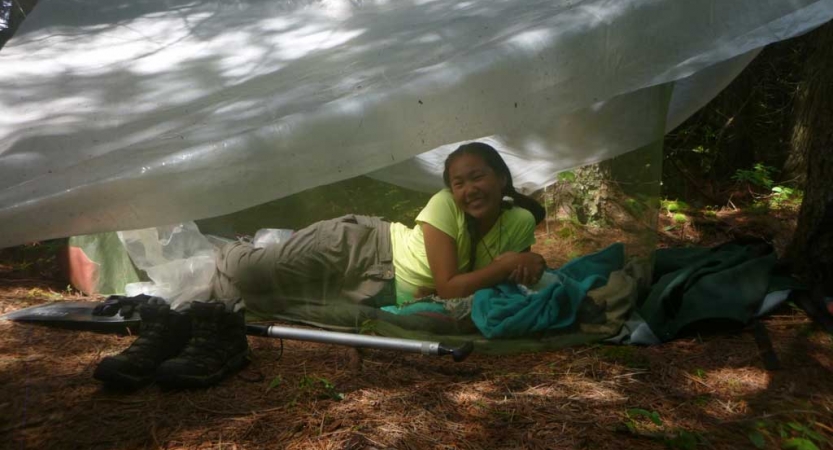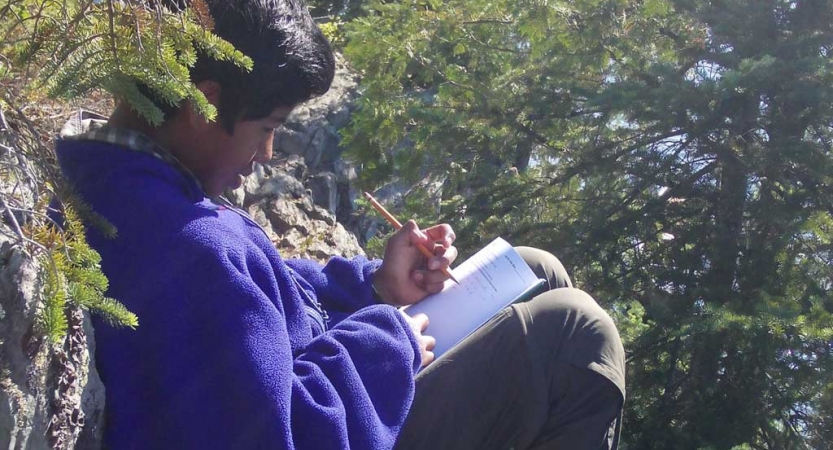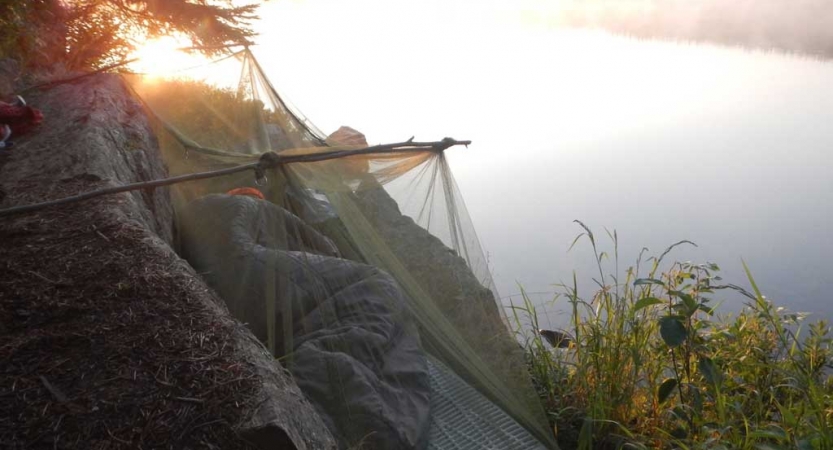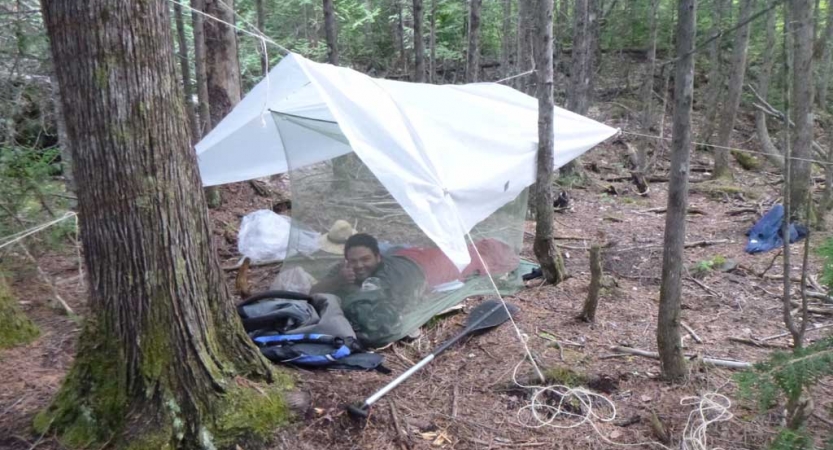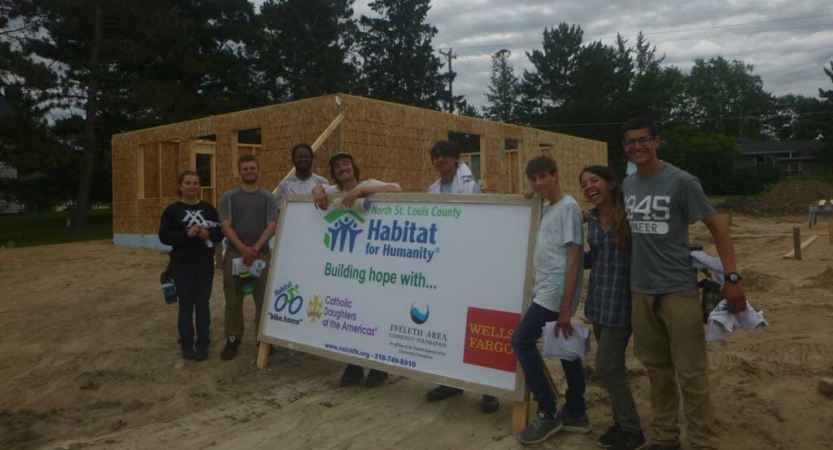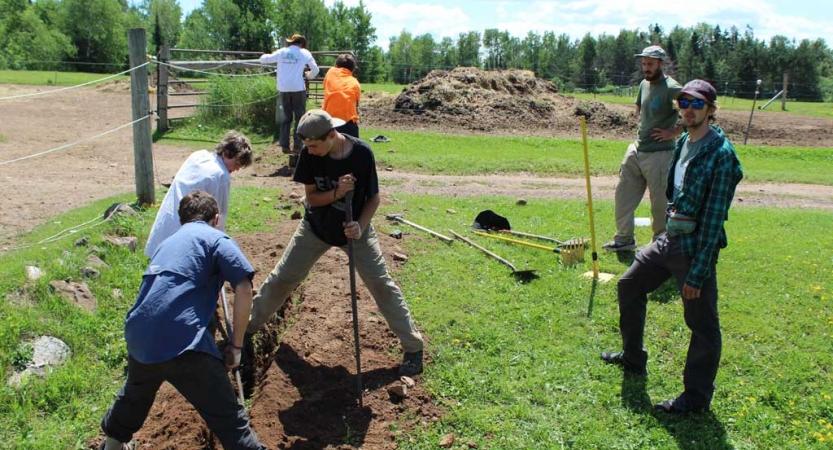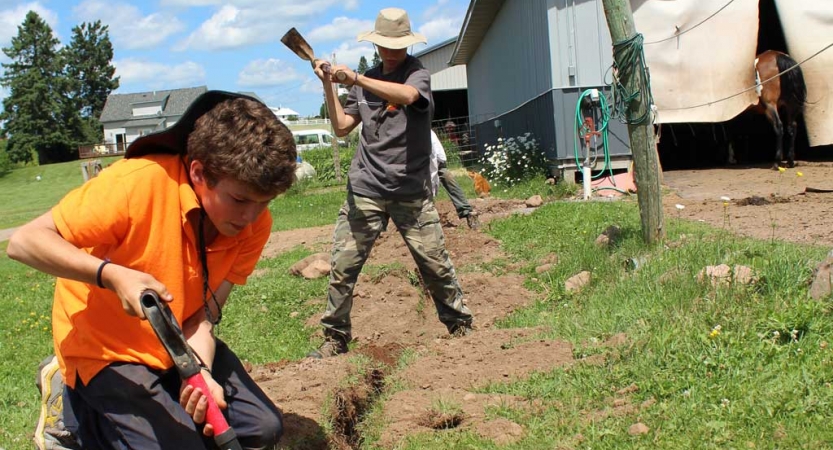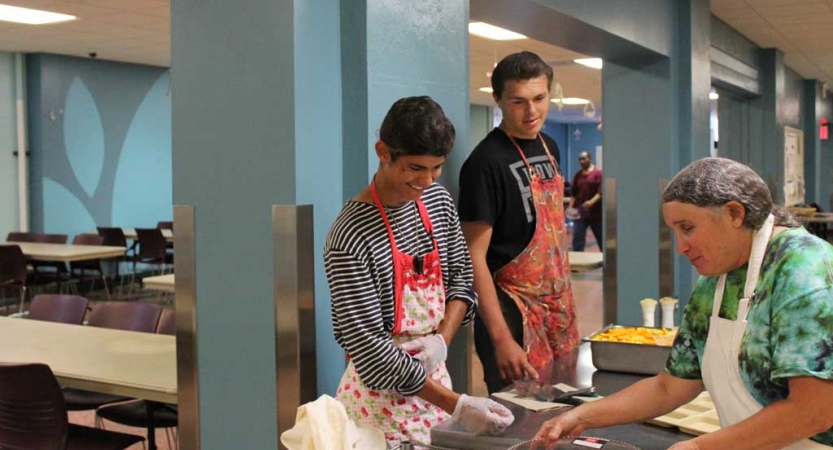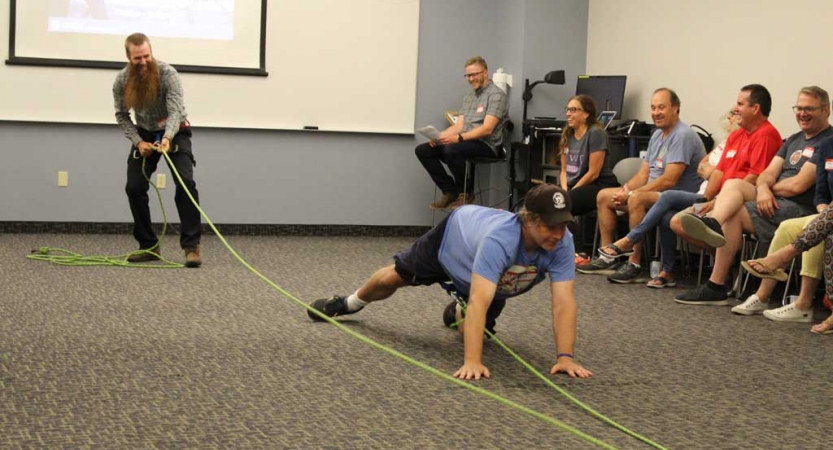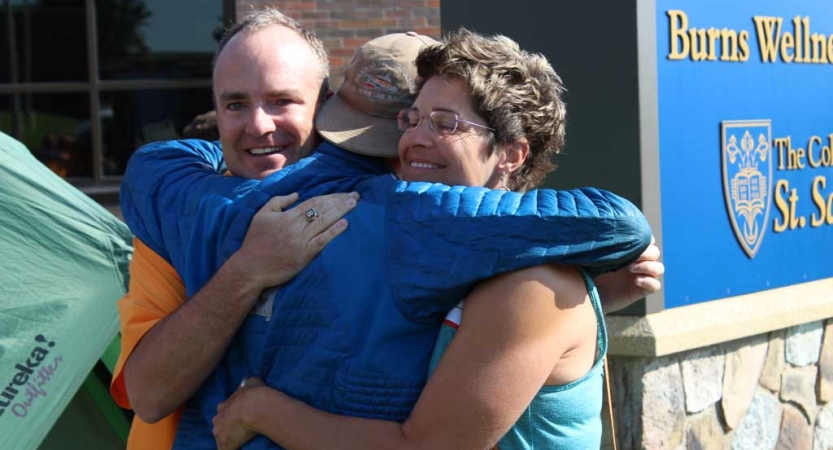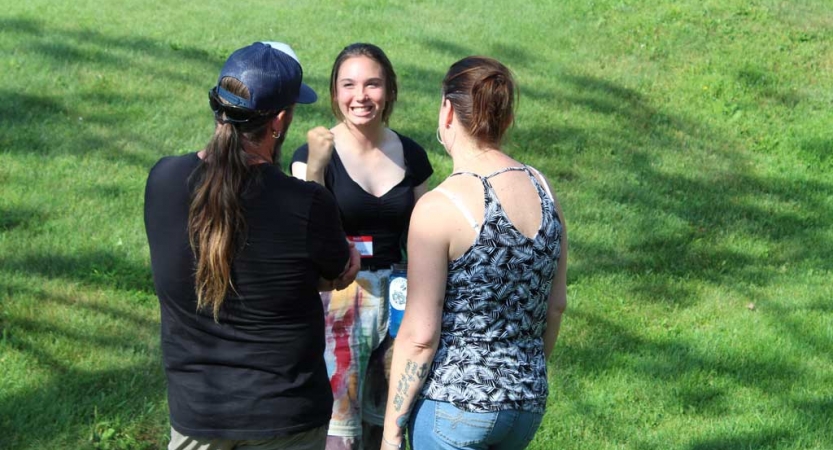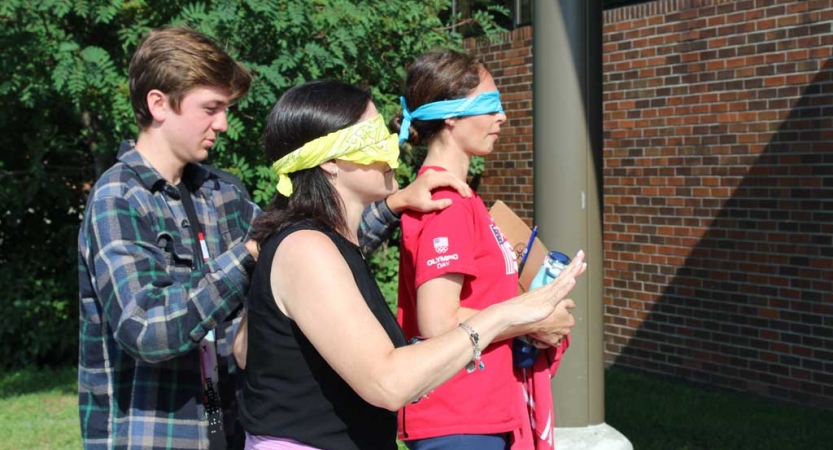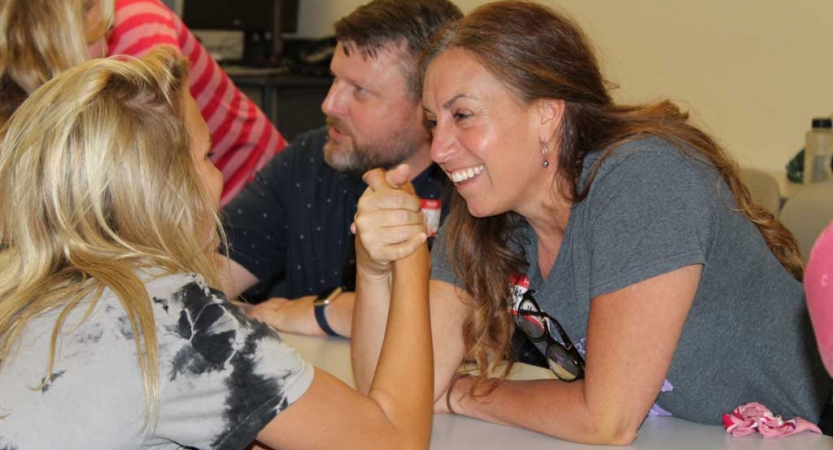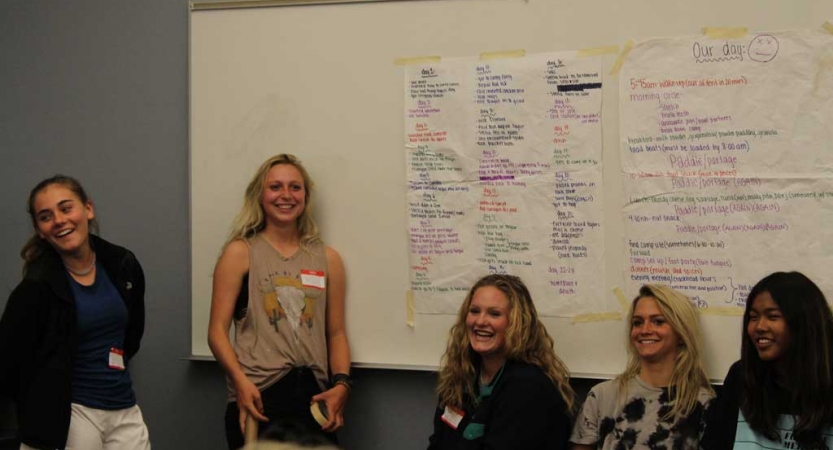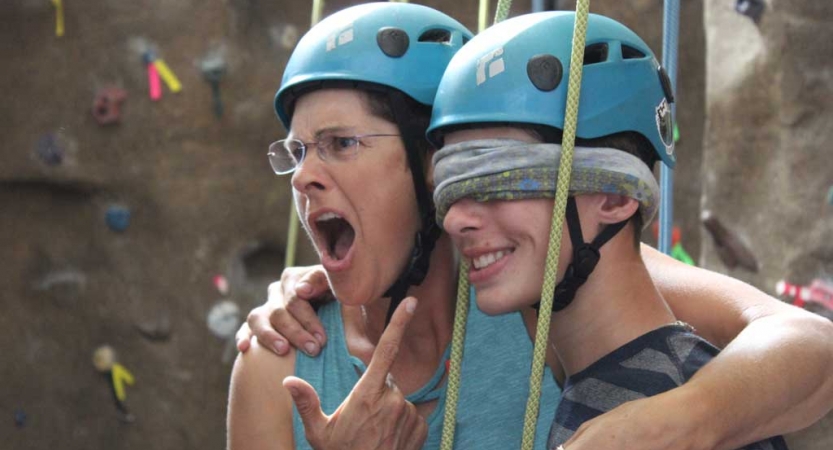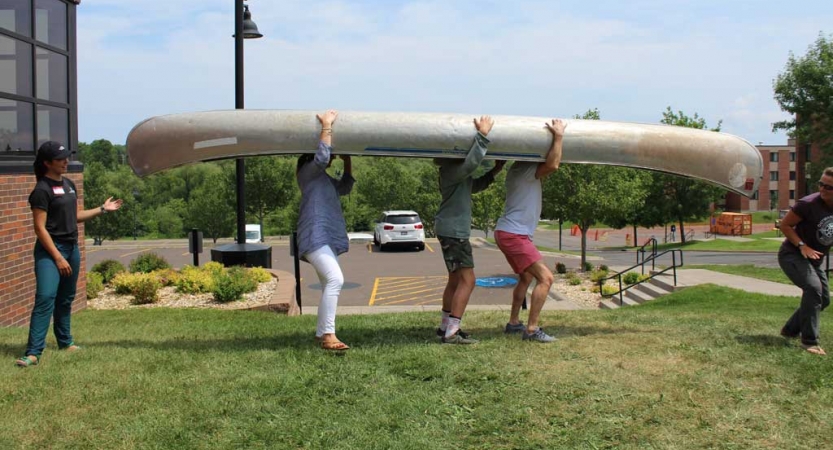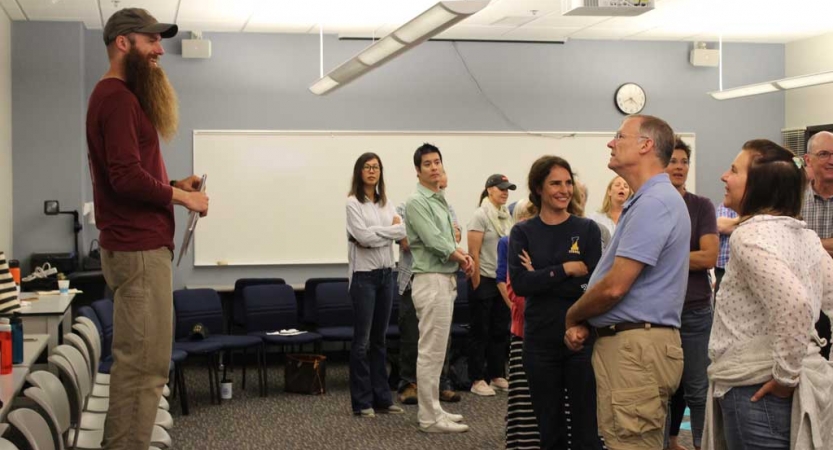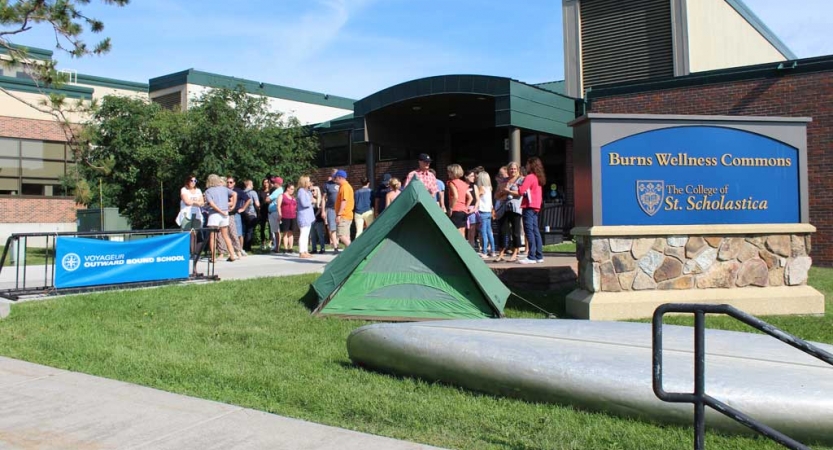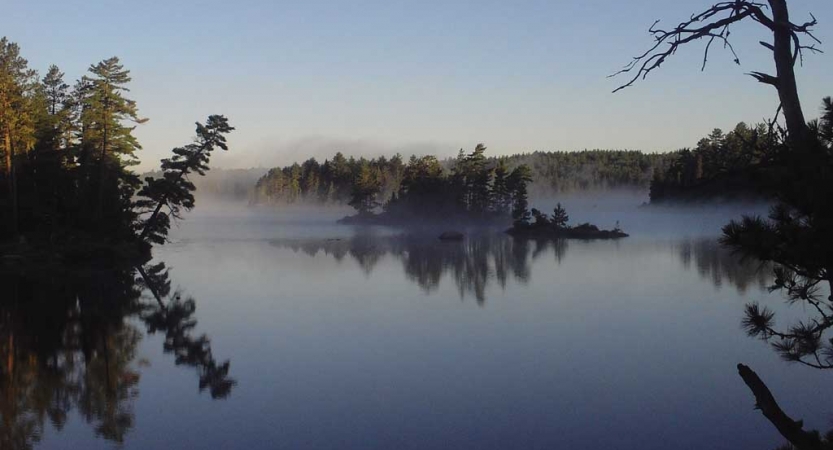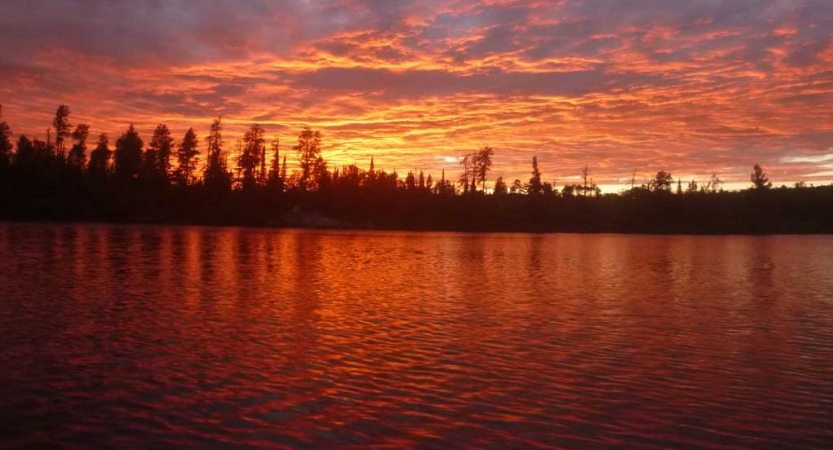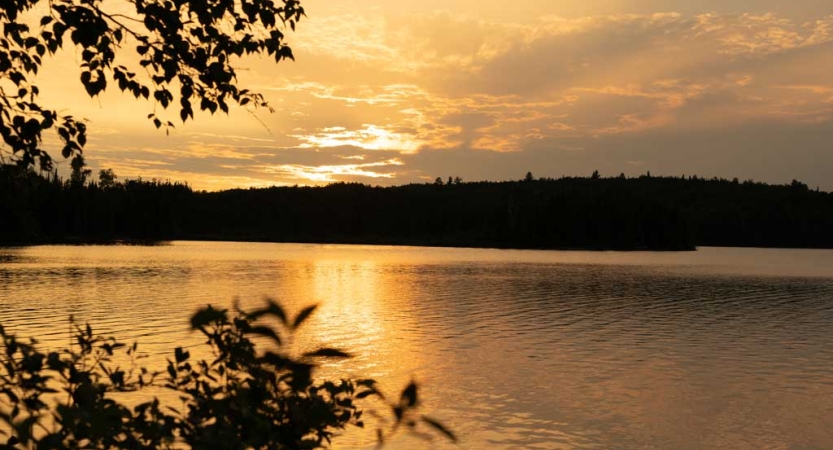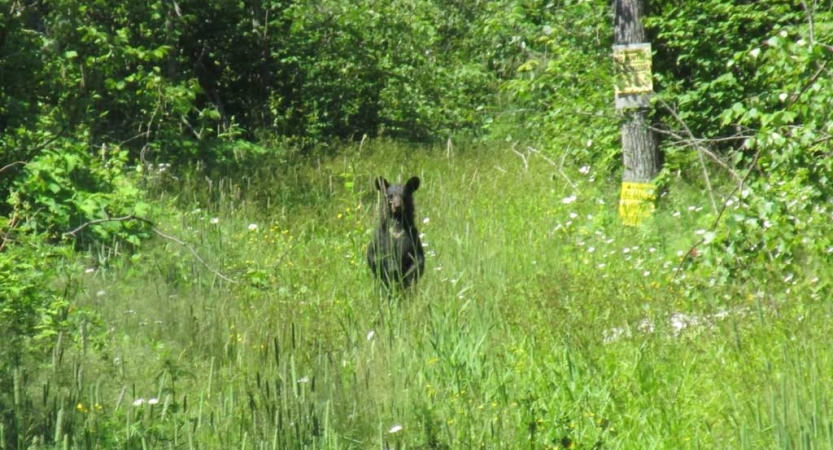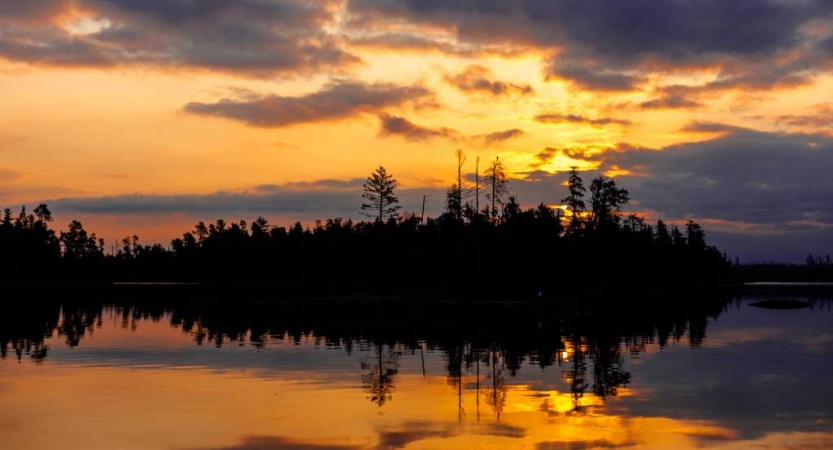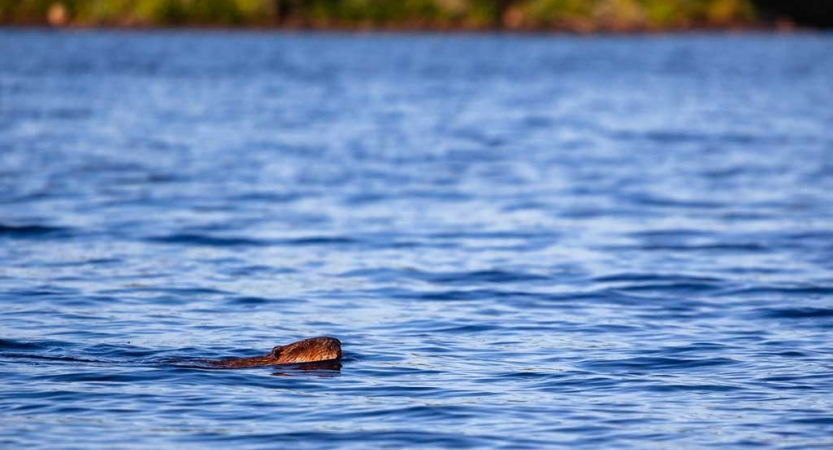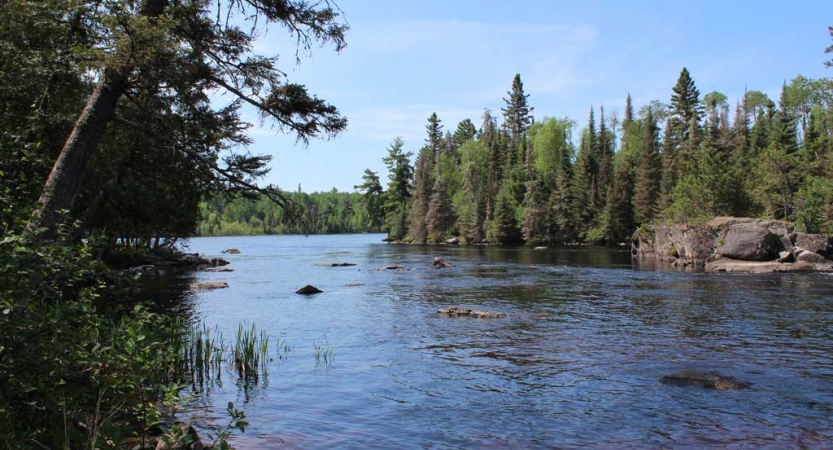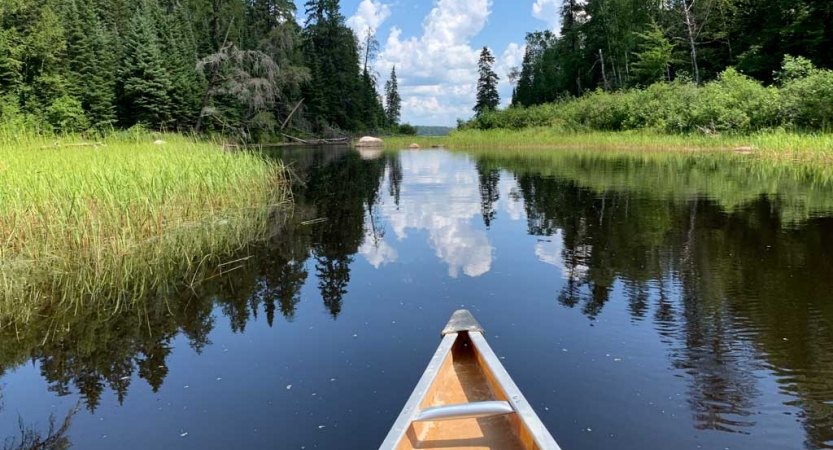-
EXPEDITIONS
-
Southwest Rafting
-
Yosemite Alpine Backpacking
-
Potomac River Canoeing and Appalachian Backpacking
-
Penobscot Bay & Islands Sailing
-
Water Gap Backpacking, Canoeing & Leadership
-
Potomac River Canoeing and Appalachian Backpacking
-
Water Gap Backpacking, Canoeing & Leadership
-
Maine Coast Sailing
-
Southwest Rafting & Backpacking
-
High Sierra Alpine Backpacking
-
Blue Ridge Mountains Backpacking & Whitewater Canoeing
-
Boundary Waters Canoeing for Adults
-
Blue Ridge Mountains Backpacking & Rock Climbing for Adults
-
High Sierra Alpine Backpacking & Rock Climbing for Adults
-
Pathfinder Boundary Waters Canoeing & Backpacking
-
Pathfinder Southwest Canyoneering & Rafting
-
Pathfinder Blue Ridge Mountains Backpacking, Whitewater Canoeing & Rock Climbing
-
Pathfinder Rocky Mountains to Canyonlands
-
Blue Ridge Mountains to Florida & Patagonia Leadership Semester
-
Maine to Bahamas Leadership Semester
-
Canyonlands to Joshua Tree Leadership Semester
-
Costa Rica and Panama Leadership Semester
-
Penobscot Bay & Islands Sailing for Girls
-
Blue Ridge Mountains Backpacking & Rock Climbing for Families
-
High Sierra Alpine Backpacking & Rock Climbing for POC
-
Colorado Rockies Alpine Backpacking for Girls
-
Blue Ridge Mountains Backpacking & Rock Climbing for LGBTQ+ Teens
-
High Sierra Backpacking & Rock Climbing for Boys
-
Ten Thousand Islands Sea Kayaking for Veterans
-
Blue Ridge Mountains Backpacking & Rock Climbing for Women Veterans
-
Ten Thousand Islands Canoeing for Veterans
-
Backpacking
-
Canoeing
-
Canyoneering
-
Dog Sledding
-
Mountaineering
-
Rafting
-
Rock Climbing
-
Sailing
-
Sea Kayaking
-
Service
-
Snow and Ice
-
EXPEDITION FINDER
CLASSIC FOR MIDDLE SCHOOL
FEATURED CLASSIC FOR MIDDLE SCHOOL
FEATURED CLASSIC FOR HIGH SCHOOL
FEATURED CLASSIC FOR ADULTS
FEATURED PATHFINDER
FEATURED SEMESTER
FEATURED OUTDOOR EDUCATOR
OUTDOOR EDUCATOR OVERVIEW INTERCEPTFEATURED INTERCEPT
INTERCEPT OVERVIEW AFFINITY GROUPSFEATURED AFFINITY GROUPS
FEATURED VETERANS
FEATURED ACTIVITIES
FEATURED SCHOLARSHIPS & ACADEMIC CREDIT
SCHOLARSHIPS & ACADEMIC CREDIT OVERVIEW PLANNING COMMUNICABLE DISEASE PRACTICESFEATURED COMMUNICABLE DISEASE PRACTICES

Program Overview
Skills
- Basic First Aid
- Basic Paddle Strokes
- Belaying a Climber
- Campcraft
- Food Preparation and Cooking
- Map and Compass
- Navigation
- Safety and Risk Management
- Self Care
- Travel Techniques
- Anger Management
- Character
- Communication
- Conflict Resolution
- Empathy
- Independence
- Leadership
- Positive Risk Taking
- Responsibility
- Self Awareness
- Self Confidence
- Service
Let’s Connect!
Intercept Boundary Waters Canoeing
Disrupt your routines and discover new tools for communication on this four-week canoeing expedition in the magnificent pristine lakes and forests of northern Minnesota.
Designed specifically to help families rebuild strong, healthy family relationships in an awe-inspiring true American wilderness students will learn to thrive in the outdoors while building connection, responsibility, and perspective on this incredible Intercept expedition. During the expedition, Instructors facilitate activities that focus on building teamwork skills, making better decisions and considering the relationship between freedom and responsibilities at home. The expedition also includes two days of community service at locations like the local CSA farm or Habitat for Humanity. The goal of the entire program is to help each student find the leader within themselves.
At the end of the wilderness expedition, parents arrive for an intensive family seminar that helps families leverage the experience into a model for everyday life. Families walk away with new problem-solving tools, a fresh optimism and outlook, and a plan for future success.
Program Overview
Skills
- Basic First Aid
- Basic Paddle Strokes
- Belaying a Climber
- Campcraft
- Food Preparation and Cooking
- Map and Compass
- Navigation
- Safety and Risk Management
- Self Care
- Travel Techniques
- Anger Management
- Character
- Communication
- Conflict Resolution
- Empathy
- Independence
- Leadership
- Positive Risk Taking
- Responsibility
- Self Awareness
- Self Confidence
- Service
UPCOMING COURSES
What is this?
For detailed information on course availability statuses and what they mean, click here.
- All Ages
- Cost
- Duration
- Date
Course # VMIC-2561
Age 14 - 17
Days 28
Cost $10,100
Dates 6/10/2025 - 7/7/2025
APPLY NOW
This means a course has several open spots and is actively processing applications.
What is this?
For detailed information on course availability statuses and what they mean, click here.
Course # VMIC-2562
Age 14 - 17
Days 28
Cost $10,100
Dates 7/8/2025 - 8/4/2025
APPLY NOW
This means a course has several open spots and is actively processing applications.
What is this?
For detailed information on course availability statuses and what they mean, click here.
Course # VMIC-2564
Age 14 - 17
Days 28
Cost $10,100
Dates 7/15/2025 - 8/11/2025
APPLY NOW
This means a course has several open spots and is actively processing applications.
What is this?
For detailed information on course availability statuses and what they mean, click here.
Course # VMSC-2561
Age 17 - 21
Days 28
Cost $10,100
Dates 9/8/2025 - 10/5/2025
APPLY NOW
This means a course has several open spots and is actively processing applications.
What is this?
For detailed information on course availability statuses and what they mean, click here.
Thank you for your interest in Outward Bound!
This course starts within the next week. Please call us at 866-467-7651 to assess the possibility of applying for this course!
APPLY NOW
This means a course has several open spots and is actively processing applications.
APPLY NOW – Almost Full
This means there are three or fewer currently available spots left on a course. To secure your spot click Apply Now to begin an application!
JOIN WAITLIST
Once a course has reached capacity, three waitlist positions become available. To join a course’s waitlist, click “Join Waitlist” to begin the application process. A $500 deposit is required. This $500 deposit includes a $150 non-refundable application fee and a $350 tuition payment. The $350 tuition payment is refundable only if you cancel your waitlist application or if an open position does not become available. If a position does become available, the applicant will be applied to the open position and the Application and Cancellation Policies of the Regional Outward Bound School will be followed, including forfeiture of the $500 deposit if you cancel 90 days or less prior to the course start date.
Waitlist applicants are encouraged to complete all required admissions documents while awaiting an open position. Positions may become available up to two weeks prior to the course start date. Applicants may only apply to one course. We recommend applying to a course with open positions instead of a course that is accepting waitlist applications. If you have questions, please call 866-467-7651 to speak with one of our Admissions Advisors.
CALL TO APPLY
This means a course is very close to its start date. Although it is unlikely to secure a spot this late, you can call the National Admissions office at 866-467-7651 to discuss your options.
COURSE IS FULL
When a course has reached maximum capacity, meaning all spots and the three waitlist spots are occupied, a course will read “Course Is Full.” This means applications are no longer being accepted.
CLOSED
As a course nears its start date, the availability status may read “Closed.” In this event, a course roster has been finalized and applications are no longer being accepted or processed.
This course starts in . Are you sure you would like to proceed?
I liked that this program mirrors life in our home; that it uses mother nature to teach life lessons, then provides tools for what occurs in life back home.
Growing is tough, we get it. And when it comes to doing hard things, having a good crew matters. That’s why we built Intercept. Outward Bound's Intercept program is for families with teens who are facing challenging circumstances and need a reset. Parents can read more about that here.
For students, these expeditions are specifically designed to help you disrupt your routines; have fun; make friends; and to discover tools to help you communicate, make positive decisions, and strengthen your relationships, both on course and when you get home. We’ll help you develop and practice these skills during exciting adventures where teamwork and your individual strengths will contribute to the success of your crew. And your family will join us for the last three days of the program, in a workshop with you and your instructors where you can demonstrate what you’ve learned and talk to your family about how to support your continued growth.
- Build skills, form connections: Learn and practice wilderness skills while working on interpersonal and group dynamics. Faced with the natural challenges of wilderness travel, students confront obstacles that require real-time, cooperative decision-making, respect and focused attention to detail – all of which are vital characteristics for life beyond the expedition.
- Value strengths and strengthen values: Students are carefully mentored through the process of self-discovery as they are encouraged to take calculated risks and make choices with natural consequences. Developing different approaches to daily trials, seeking increasingly positive outcomes, students learn adaptability and experience the relationship between choices and consequences in the real world.
- Demonstrate mastery: As the crew progresses, students are allowed to take on more leadership and decision-making responsibilities and all the joys and challenges that come with taking charge. Working both together and independently to achieve goals, students learn new skills to solve problems and succeed.
- Bridge the gap: Students prepare to reunite with families and transfer Outward Bound successes to lives back home. This process involves two days of volunteer work and culminates with a facilitated conversation between students and their families.
- What you’ll learn: Students come home with new communication strategies, improved conflict resolution skills and a keen awareness of themselves and others.
With the support of Outward Bound’s Intercept program, and the dedicated involvement of both students and their families, relationships start fresh, perceived limitations are overcome, new opportunities emerge and new futures are created.
Students embark on an unsupported wilderness canoeing expedition, meaning, they carry with them everything they will need for a three-week adventure. Expert Instructors teach the art of paddling a canoe in a variety of conditions, as well as map and compass reading, route finding and Recreate Responsibly ethics. Groups navigate a variety of waterways such as lakes, rivers and marshland, enjoying the pristine air, water and forests of the untouched wilderness. Working as a team, students carry packs and canoes over portage trails that bridge the land between bodies of water or to get safely around challenging rapids. Traveling by canoe allows groups to go far past where motorboats operate. Once there, it is possible to quietly observe all the wonders around them, including bald eagles, moose and peaceful sunsets on mirror-calm lakes.
During climbing days, students learn about general rock climbing equipment, safety and etiquette. Students have many opportunities to climb, belay and rappel while learning and employing safety systems that are compliant with national standards. The rock climbing sites provide a number of different route options including cracks, sheer faces and chimneys. Regardless of a student’s rock climbing background, they are sure to find a route that will encourage them to expand their comfort zone and accomplish their goals.
The incredible ropes course is located 30 feet in the air and looks out over the top of the boreal forest. Students swing from Tarzan ropes, walk on tightrope wires and climb a cargo net before jumping on the zip line for an exhilarating ride back to solid ground. This opportunity creates space for students to individually challenge themselves while being supported by their team at the end of the expedition experience.
The Solo experience provides an important break from the rigors of the expedition and gives students the opportunity to reflect on their Outward Bound experience. With all the food, skills and supplies they need, students are given a secluded spot to reflect alone, and are monitored by staff throughout the experience to maintain safety. The duration of Solo depends on the course length and type, as well as the competency and preparedness of the student group.
Many students use this reflection time to make decisions about their future, journal and enjoy the beauty of their surroundings unencumbered by the constant external stimulation of modern life. Students find that Solo provokes profound and powerful learning in a short period of time and often becomes one of the most memorable parts of their Outward Bound experience.
Service is a cornerstone of every Outward Bound experience. From the seemingly small, daily acts of service to the environment and the expedition team to the post-expedition service-learning projects, students have ample opportunities to experience the value of giving back to the larger community. On the expedition, students are encouraged to practice environmental stewardship in the form of Recreate Responsibly ethics. Students also practice regular acts of service for their team, including preparing and serving meals, helping others put on or take off packs, or setting up shelters for the entire team.
After the expedition, students participate in two days of organized service to the community. These projects are designed to offer as much interaction with local communities as possible, as a way of exchanging cultural awareness and fostering a sense of connection to the larger world. The specific type of service project depends on local needs and opportunities but could include serving at a soup kitchen, homeless shelter, senior center, nature center, or horse ranch for underprivileged youth.
By the end of the course, students have made great strides. They have learned how to balance freedom and responsibility, how to be part of a team and how to make positive choices. They feel a sense of pride in themselves and their accomplishments and have a fresh perspective and outlook on their lives. But how do teens and families translate the incredible Intercept experience into lasting positive change? Parents or guardians are a critical link in the success of the Intercept experience and have the opportunity to think through their relationship with their teen by using a comprehensive workbook. At the intensive three-day seminar, Instructors help translate the student experience to parents and guardians, giving families an opportunity to practice tools and strategies used on the expedition, creating a solid foundation of understanding and support for the path ahead.
As a part of the family seminar, families meet one-on-one with at least one of the expedition Instructors to learn how their young adult fared on the course. They hear a detailed account of what the course was like, the struggles and successes of the group and how their young adult handled the challenges. Together, with an Instructor acting as a facilitator, families come up with a new agreement to guide life at home. The goal for the family is to re-establish healthy roles and connections, restore any past harm, rebuild trust and create clear expectations for the future. The goal for the student is to have a voice in the direction their life takes and to clearly understand and commit to their responsibilities in order to earn trust and more freedom at home.
The Intercept course offers the opportunity to be fully removed from the temptations and triggers of day-to-day life and start fresh with new habits and new lessons. Students can expect to get comfortable living and working together in the wilderness while creating a solid foundation of skill sets that they can continue to build on after course. With the added support of parent or guardian involvement, students are really able to take lessons they’ve learned on course back to their home lives and implement the changes they want to see.
Boundary Waters Canoe Area Wilderness, Minnesota
Established in 1978, the Boundary Waters Canoe Area Wilderness (BWCAW) is a labyrinth of lakes and rocks that has been specifically protected as a true American wilderness. No roads, power lines or motorized craft may enter its borders. Therefore, the Boundary Waters has changed little since its unveiling when the glaciers melted 10,000 years ago.
Over one million acres in size, the BWCAW extends nearly 150 miles along the Minnesota/Canadian border. With over 1,200 miles of canoe routes, nearly 2,200 designated campsites and more than 1,000 lakes and streams, the BWCAW is an amazing place to experience the wilderness. It contains portage-linked lakes and streams, interspersed with islands, forests and ancient granite crags, offering outstanding opportunities for world-class paddling, solitude, remoteness, teamwork, adventure and challenge. It is also home to a healthy diversity of plant and animal life including massive white pine and cedar groves, black bear, timber wolves, bald eagles and river otter. The Boundary Waters has no piped water, prepared shelters or signs to point the way. The Boundary Waters' paddling routes offer outstanding opportunities for solitude, remoteness, teamwork, adventure and challenge. These regions are the ancestral lands of the Anishinabewaki ᐊᓂᔑᓈᐯᐗᑭ and Očeti Šakówiŋ (Sioux) nations.
Course Stories
I liked that this program mirrors life in our home; that it uses mother nature to teach life lessons, then provides tools for what occurs in life back home.
We like that it is not just about the outdoors or adventure. The program does an excellent job of tying in developmental lessons and great conflict resolution methodologies that can create a nice level playing field for families when we leave.
Outward Bound has been a life changing tool that has allowed me to stop and take a second look at the path I want to go down, versus the path I have been following. Living with a group of individuals has taught me a lot about perspective and that everyone has their struggles, but there's always a way to push past them. I'm leaving this course with a new understanding of empathy and accountability while leaving behind my negative energy towards others. I will remember the Outward Bound community and what they stand for.
I liked that the principles of Outward Bound were extended to serve a particular segment of families that have distinct needs. I really like the addition of the family seminar as a means to give families tools and to provide families with support for each other. The relationships with staff were very professional, yet warm.
This course changed my life. I challenged myself physically and mentally every day whether that was paddling and portaging or having conversations on how I can better myself with my group.
When I get home, I can tell people that Outward Bound reminded me about who I really am and want to be. It kickstarted that change into being a better person.
My Outward Bound course meant a lot to me because I learned a lot about myself. I learned that I am really good at stepping into conversations before they escalate. I also learned that I am really good at cooking and cleaning pots. I also realized how good of a leader that I am. I learned that I am really good with communicating my feelings to people and what my boundaries are. I think that this course has opened up all my hidden skills and talents that I never knew I was good at, it was great for me physically and emotionally.
I decided to do this expedition to learn how to talk about my emotions and feelings, how I can be more trustworthy, and how to improve my relationships with my parents. I never thought I would be able to talk about how I feel with people I have known for only 22 days but I was able to accomplish that through this course. This was probably the best decision I have made my whole life.
Before this course, I was locked in my comfort zone and was unwilling to try new things. Now after, I feel like I have changed. Outward Bound has helped me so much with developing better social skills and making new friends. It has helped me know how to be more efficient and get work done quickly. It has helped me escape my comfort zone and try new things. Most of all, Outward Bound has challenged me in so many ways that has helped me find myself and discover what I am capable of.
OTHER COURSES YOU MAY LIKE


Intercept Boundary Waters Semester
Courses: 1 date available Ages: 17-21 Length: 50 Days Cost: $16,550 Details & Dates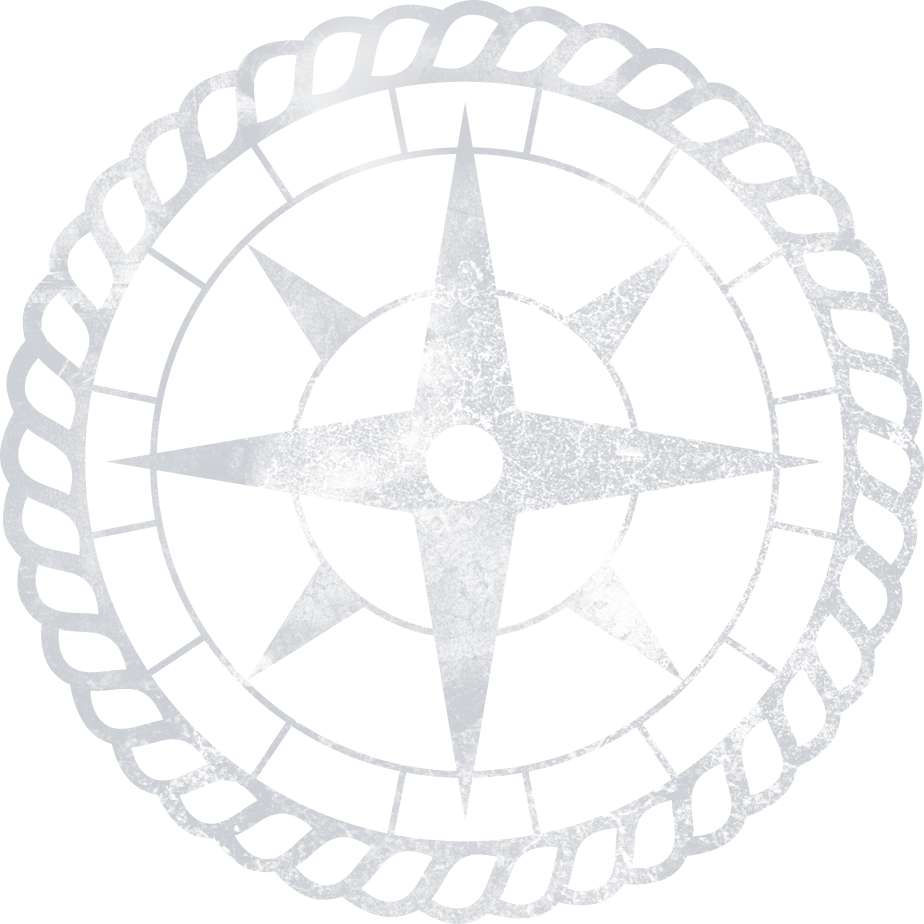
Getting Started
If you are ready to enroll on a course click the enroll button next to the course you wish to select or you can enroll over the phone by speaking with one of our Admissions Advisors (toll-free) at 866-467-7651.
To secure your spot on a course you must submit an enrollment form and $500 deposit that is applied toward the total cost of the course and includes a $150 non-refundable enrollment processing fee.


